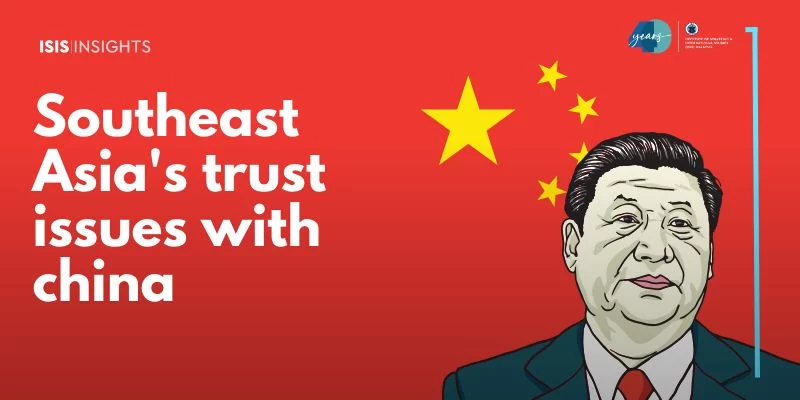Beijing must repair relationships as it attempts to revive economy after scrapping Covid strategy
SINGAPORE’S ISEAS-Yusof Ishak Institute has been conducting its state of Southeast Asia surveys since 2019 and last year’s online poll among policymakers, researchers, businesses, civil society and the media revealed a stark difference between poor levels of trust in China and improved trust ratings for other major powers.
Despite Covid-19 bringing Southeast Asia and China closer, the percentage of respondents who feared China climbed from 51.5% in 2019 to 60.4% in 2020, peaking at 63% in 2021.
This is against the backdrop of news that Asean had surpassed the European Union in 2020 to become China’s largest trading partner. This trend is expected to continue. In fact, in 2022, the first year in which the Regional Comprehensive Economic Partnership (RCEP) came into effect, Chinese trade with Asean jumped 15% year-over-year.
Although the level of distrust waned slightly to 59.6% according to ISEAS’ 2022 survey, there is no denying that a major confidence gap persists against China. There are, in fact, two opposing views. On the one hand, 76.3% of Southeast Asians agree that China is the most important economic player in the region. On the other, 72.3% are worried about China’s expanding economic influence. More than 51% worry that China’s economic and military power could threaten the interests and sovereignty of Asean member states.
How is it that China is economically influential but the most mistrusted among the major powers in the following order – Japan, the EU, the United States, and India? Several factors contribute to the mistrust but the emergence of a Chinese dictatorship could be the most significant. President Xi Jinping’s historic third term goes against the “collective leadership” reforms set in place by Deng Xiaoping in the late 1970s.
The real concern of respondents is not only about China’s growing economic, political influence and military might, but the possibility that China under a dictatorship will use its growing influence and power to punish their states’ foreign policy decisions through the use of economic tools and by cutting off tourism flows. This could help explain why China is rated as the least trusted power in Southeast Asia.
Why has it taken this long for such sentiment to be noticed? Perhaps it could be because Asean has held to a long tradition of having a disconnect between economic and security processes. In the three pillars of the Asean community, the political-security community is disconnected from the economic (the third pillar being socio-cultural).
This is not to say that China is blameless. Its recent diplomatic approaches – part of its “wolf warrior” diplomacy – are seen as aggressive and coercive. It has responded aggressively on the origin of Covid-19, its South China Sea strategy, obsessed with border disputes and military displays in the Taiwan Strait. China’s reputation has suffered and it is seen less as a partner and more as competitor.
The Financial Times reported recently that Xi’s diplomatic and economic policies are currently undergoing a major reset. Chinese officials and experts said that several distinct economic, social, and foreign policy strains have come together and reached such critical levels, so as to be the driving force behind the reset. This is seen as an extension of the “spirit” of the 20th congress of the Communist Party last October, which was the most significant turning point in Chinese politics in recent years.
The main economic goals are to stabilise the collapsing real estate market, resolve a financial crisis impacting many local governments and bring back strong growth, compounded by the problem of a rapidly declining working-age population (120 million fewer workers by 2040). Furthermore, after a period during which Beijing felt the effects of its isolation, China’s major diplomatic goal is to improve relations with other nations.
The survey provided crucial insights into factors that influence our region. Ultimately, the international community is not prepared to deal with an assertive and hostile China. It’s also against Beijing’s interest to use its activities in the South China Sea or “debt-trap diplomacy” by including huge loans in the Belt and Road Initiative (BRI) that could push Asean closer to the US.
RCEP is the first step in the right direction but as clearly shown by the survey findings, trade can only do so much to reduce mistrust. Asean in the past was captivated by a long list of Chinese cooperative initiatives, financial support, especially through BRI, and the provision of vaccines. Upholding important values like the rule of law, advancing good governance, and bolstering human rights are also necessary if Beijing wants to win over the hearts and minds of its Southeast Asian neighbours.





